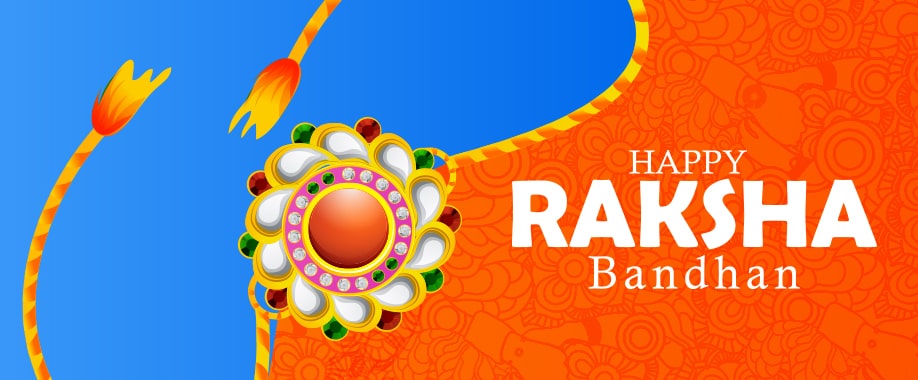
Rakshabandhan
"TYING NEWER THREADS OF TRADITION"
A festival that acknowledges a relationship across generations and ages: the love between siblings.
Rakshabandhan, carried forward since ages long celebrates the promise of a brother to protect (Raksha) his sister. In the heart of these traditions this emanated from a man's sense of doing right by a woman by considering her his sister. A knot signified his loyalty to safeguarding her honour and wishes.
And today, the world has evolved to add more to this plate of ceremonies. Conventions are being pulled down and fresh drapes of modernity are donning the walls of society. Though maintaining the traditional brother-sister duo of the rituals, novel practices are also finding a place. The most common of which is- the knot of Rakshabetween siblings of the same gender. Because when it comes to protection, one's fighter-spirit is neither masculine nor feminine.
It is interesting to observe the metamorphosis of the understanding of the rakhi. Brother to Brother, Sister to Sister and also from a younger Brother to his elder Sister. The bounds of this thread have broken orthodox beliefs to tie renewed meanings of raksha. The symbol of rakhi has evolved from tradition to emotion. The significance has graduated from blind convention to the clear vision of this age's reality. And with this new sensibility carving its way into modern India, festivities are now added with more frolic and fulfillment. Because every emotion is now equally understood; every bond is equally a bond of the rakhi.
Historically, an interesting fact about Rakshabandhan: the rakhi was tied only by women seeking protection and help from men in general. Legends have it that Alexander's wife tied a rakhi on Porus' hand in a promise to spare her husband. And also that Porus' attempt at killing Alexander was aborted when he saw her rakhi. Legend No.2 is more riveting, for a Rajput queen sent a rakhi to a Mughal Emperor requesting his help for defending another Mughal invasion. While Rani Karmavati of Chittor moved Emperor Humayun with her rakhi, the latter's arduous efforts couldn't save her from self-immolation. This in turn, led him to be deeply disturbed for not being able to honour her rakhi. Such was the power of a thread in tying the strongest of emotions even between the most distant people.
All that said, the festival is rejoiced and venerated, engaging siblings to promise protection and care for each other. Innocence makes its own inroads when sisters mischievously demand money from their brothers or elder sisters. At the end of the day, with playfulness and pledges, this bandhan embraces everyone in its arms of love and inclusiveness.
It is only when these knots are strong that an emotion of togetherness lives long.





